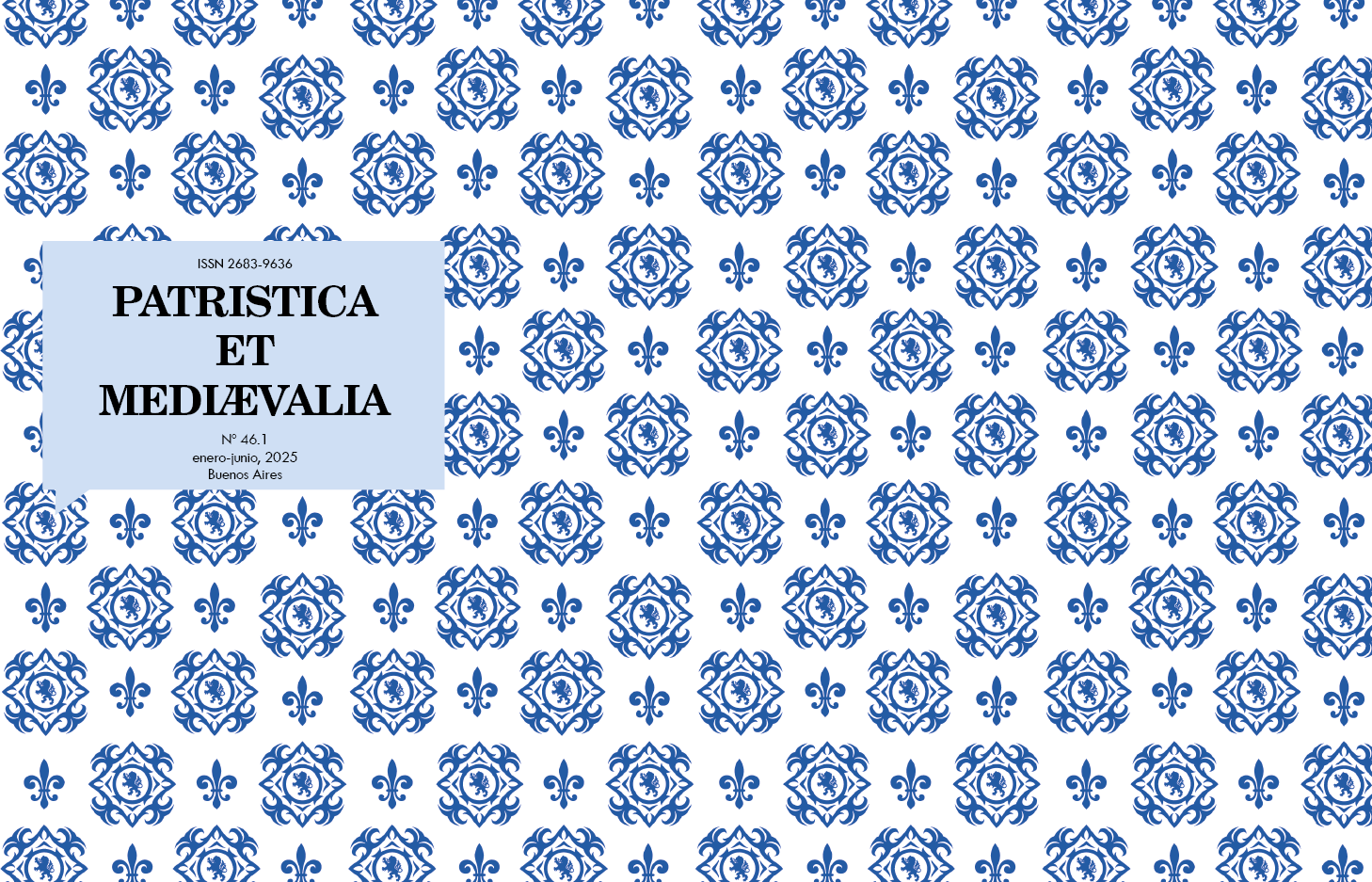The Nature of Propositions and Propositional Attitudes According to William of Ockham
Abstract
Ockham proposed two consecutive theories about the nature of common concepts or universals. In parallel to these two theories, Ockham proposed two theories about the nature of propositions. This article has two interrelated goals. First, to reveal that Ockham's first theory of the nature of propositions solves only two of the three problems that contemporary propositional realism conceives in some of its arguments, while the second theory solves three of those problems. In each case, however, Ockham attributes the same characteristics and functions to propositions as contemporary literature. Secondly, my goal in this article is to reveal that, by observing those characteristics and functions of propositions, it is clear that Ockham's theories about propositions are consistent with a single theory about the nature of judgments, and apprehensions, two different types of propositional attitudes.Downloads
References
Fuentes
Ediciones y traducciones
Guilelmus de Ockham. (1967-2000). Opera Theologica (OTh). Franciscan Institute Publications.
Guilelmus de Ockham. (1974-2001). Opera Philosophica (OPh). Franciscan Institute Publications.
Guilelmus de Ockham (1967). Scriptum in Librum Primum Sententiarum (Ordinatio). Prologus et Distinctio Prima (Opera Theologica 1). Ed. Gál, G. y Brown, S. Franciscan Institute Publications.
Guilelmus de Ockham (1970). Scriptum in Librum Primum Sententiarum (Ordinatio). Distinctiones II-III (Opera Theologica 2). Ed. Gál, G. y Brown, S. Franciscan Institute Publications.
Guilelmus de Ockham (1974). Summa logicae (Opera Philosophica 1). Ed. Boehner, P., Gál, G. y Brown, S. Franciscan Institute Publications.
Guilelmus de Ockham (1978). Expositio in Librum Perihermenias Aristotelis (Opera Philosophica 2). Ed. Gambatese, A. y Brown, S. Franciscan Institute Publications.
Guilelmus de Ockham (1980). Quodlibeta Septem (Opera Theologica 9). Ed. Wey, J. C. Franciscan Institute Publications.
Guilelmus de Ockham (1981). Quaestiones in Librum Secundum Sententiarum (Reportatio) (Opera Theologica 5). Ed. Gál, G. y Wood, R. Franciscan Institute Publications.
Guilelmus de Ockham (1984). Quaestiones in Libros Physicorum Aristotelis (Opera Philosophica 6). Franciscan Institute Publications.
William of Ockham (2011). Ockham’s Theory of Propositions: Part II of the Summa Logicae. Trad. Freddoso A. J. St. Augustine’s Press.
Bibliografía complementaria
Brower-Toland, S. (2015). “How Chatton Changed Ockham’s Mind, William Ockham and Walter Chatton on Objects and Acts of Judgment”. En: Klima, G. (ed.). Intentionality, cognition, and mental representation in medieval philosophy. Fordham University Press, 204-234. DOI: 10.1515/9780823262779-012
Cesalli, L. (2016). “Propositions: Their Meaning and Truth”. En: Dutilh Novaes C. y Read S. (eds.). The Cambridge Companion to Medieval Logic. Cambridge University Press, 245-264. DOI: 10.1017/CBO9781107449862.007
Dennett, D. C. (1991). Consciousness Explained. Little, Brown and Co.
Dorr, C. (2007). “There Are No Abstract Objects”. En: Sider T., Hawthorne Zimmerman J. y Malden D. W. (eds.). Contemporary debates in metaphysics. Blackwell. 32–64.
Karger, É. (1994). “Théories de la pensée, de ses objets et de son discours chez Guillaume d’Occam”, Dialogue: Canadian Philosophical Review/Revue canadienne de philosophie 33.3, 437-456. DOI: 10.1017/S0012217300039056
Karger, É. (1995). “William of Ockham, Walter Chatton and Adam Wodeham on the Objects of Knowledge and Belief”, Vivarium 33.2, 171-196. DOI: 10.1163/1568534952579759
Karger, É. (1996). “Mental Sentences According to Burley and to the Early Ockham”, Vivarium 34.2, 192-230. DOI: 10.1163/1568534962579541
Kelley, F. E. (2015). “Some Observations on the ‘Fictum’ Theory in Ockham and Its Relation to Hervaeus Natalis”, Franciscan Studies 38.1, 260-282. DOI: 10.1353/frc.1978.0007
Loux, M. J. y Crisp, T. M. (2017). “Propositions and Their Neighbors”. En: Idem. Metaphysics: a contemporary introduction. Routledge, 118-148.
Marmodoro, A. y Mayr, E. (2019). Metaphysics: An Introduction to Contemporary Debates and Their History. Oxford University Press.
Panaccio, C. (1983). “Guillaume d’Ockham, signification et supposition”. En: Brind’Amour, L. y Vance E. (eds.). Archéologie du signe. Institut pontifical d’études médiévales, 265-286.
Panaccio, C. (2009). “Le jugement comme acte mental selon Guillaume d’Ockham”. En: Biard, J. (ed.). Le langage mental du moyen âge à l’âge classique. Éditions de l’Institut supérieur de philosophie - Peeters, 117-133.
Panaccio, C. y Piché, D. (2010). “Ockham’s Reliabilism and the Intuition of Non-Existents”. En: Lagerlund, H. (ed.). Rethinking the History of Skepticism. Brill, 97-118. DOI: 10.1163/ej.9789004170612.i-238.33
Perini-Santos, E. (2006). La théorie ockhamienne de la connaissance évidente. Vrin.
Read, S. (1977). “The Objective Being of Ockham’s Ficta”. The Philosophical Quarterly 27.106, 14-31. DOI: 10.2307/2218925
Swoyer, C. (2007). “Abstract Entities”. En: Sider T., Hawthorne J. y Zimmerman D. W. (eds.). Contemporary debates in metaphysics. Blackwell, 11-31.
Yrjönsuuri, M. (1997). “Supposition and Truth in Ockham’s Mental Language”, Topoi 16.1, 15-25. DOI: 10.1023/A:1005759617955
1. The authors who publish in this magazine accept the following conditions:
-
They retain the copyright and grant to the magazine the right of the first publication, with the work registered under the Attribution-ShareAlike 4.0 International License that allows third parties to use what is published as long as they mention the authorship of the work and the first publication in this magazine.
-
They can make other independent and additional contractual agreements for the non-exclusive distribution of the version of the article published in this magazine (eg. include it in an institutional repository or publish it in a book) provided that they clearly indicate that the work was first published in this journal.
-
They are allowed and recommended to publish their work on the Internet (for example on institutional or personal pages).
2. AutoArchive Conditions. Authors are allowed and encouraged to distribute post-print electronic versions of their manuscripts because it promotes their circulation, a possible increase of quotation and a major reach among the Academic community. Color RoMEO: blue.













